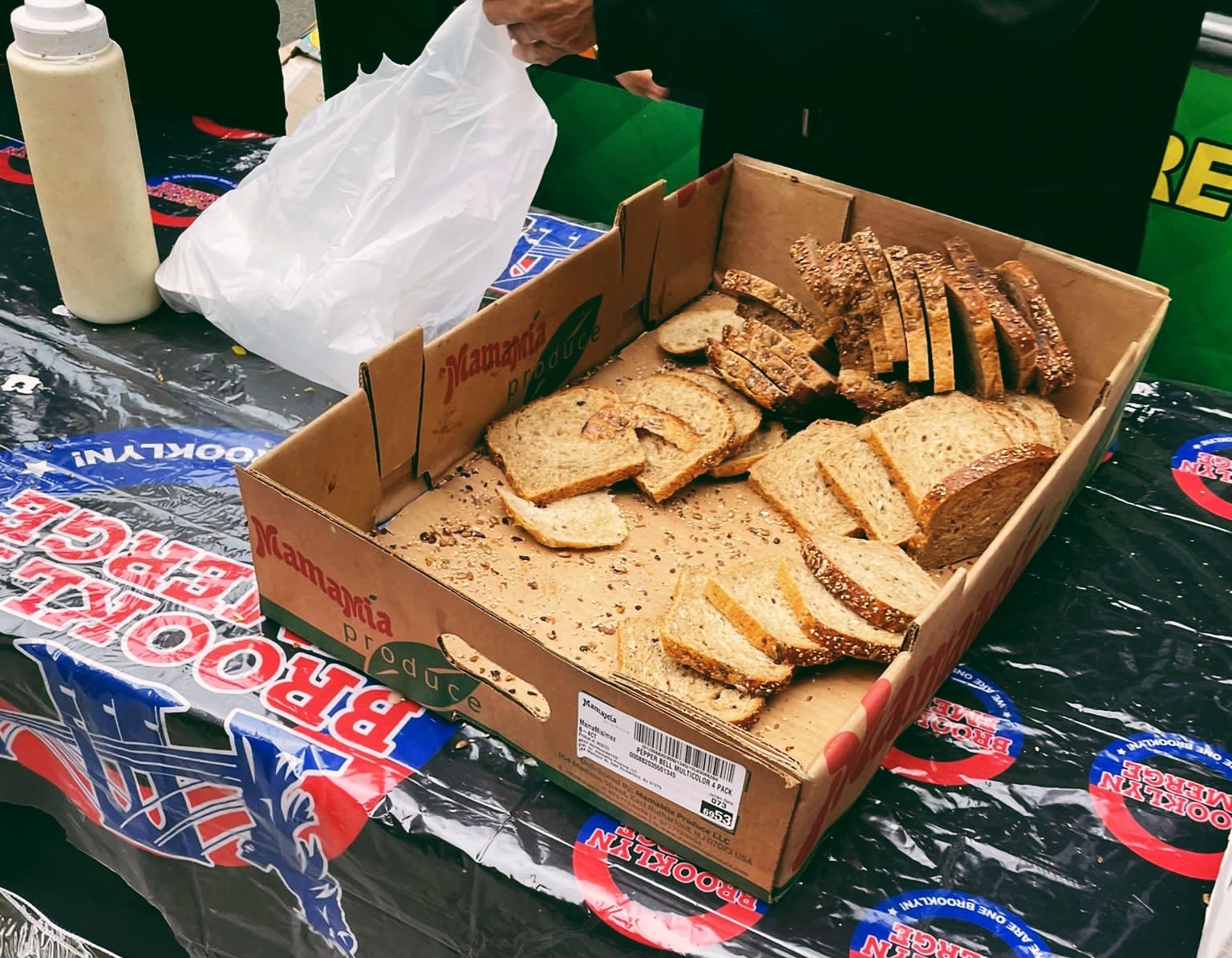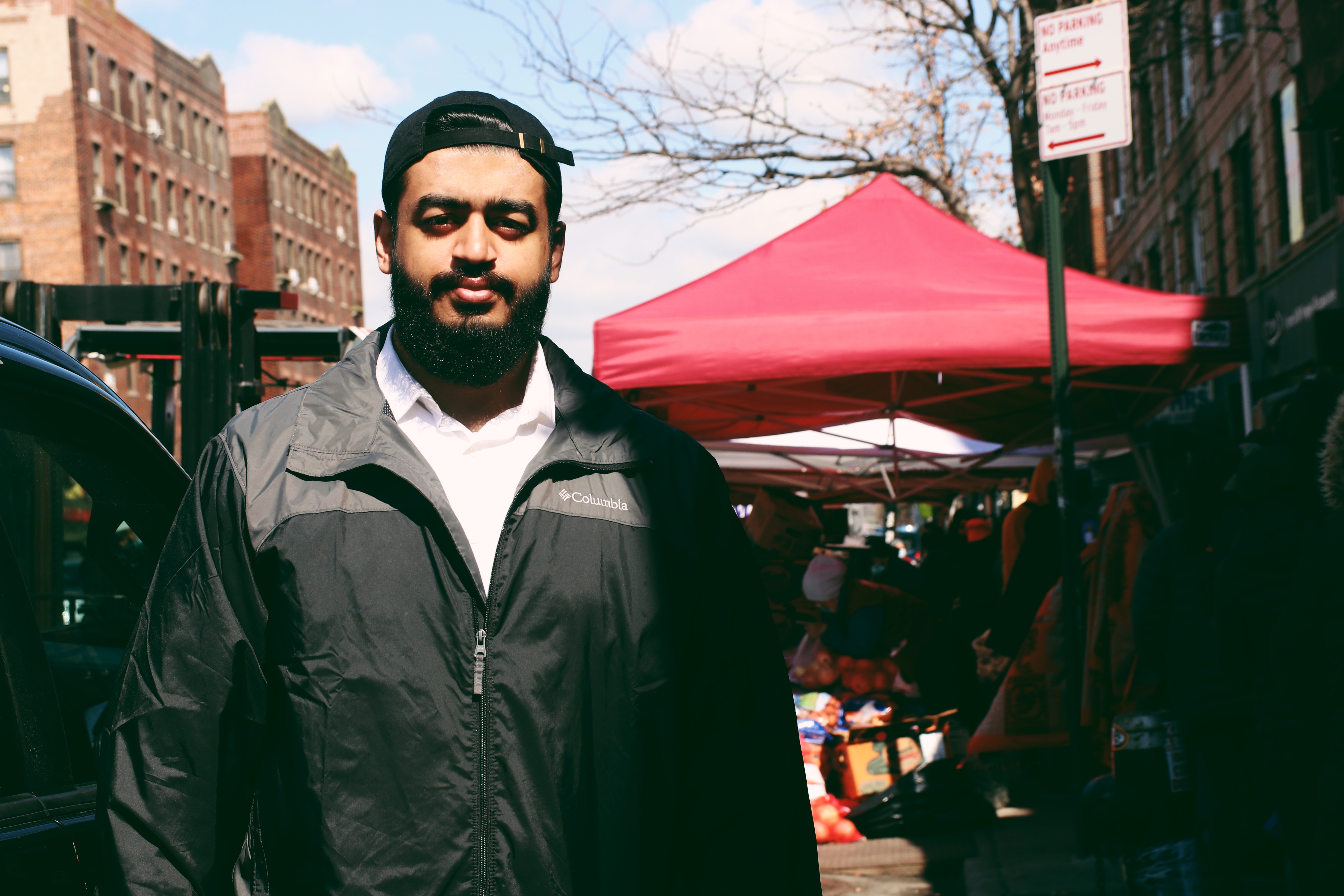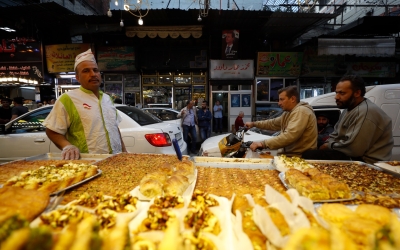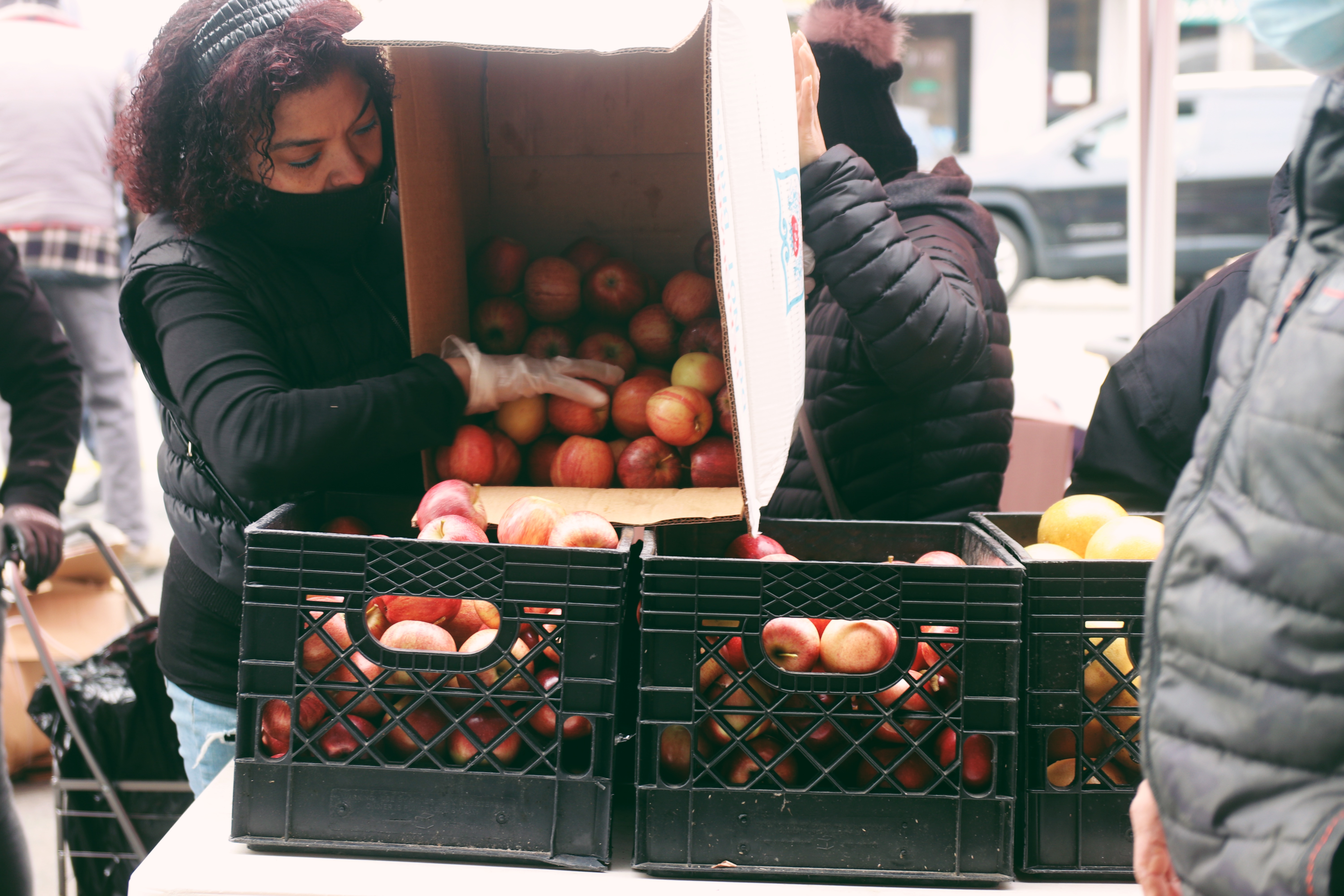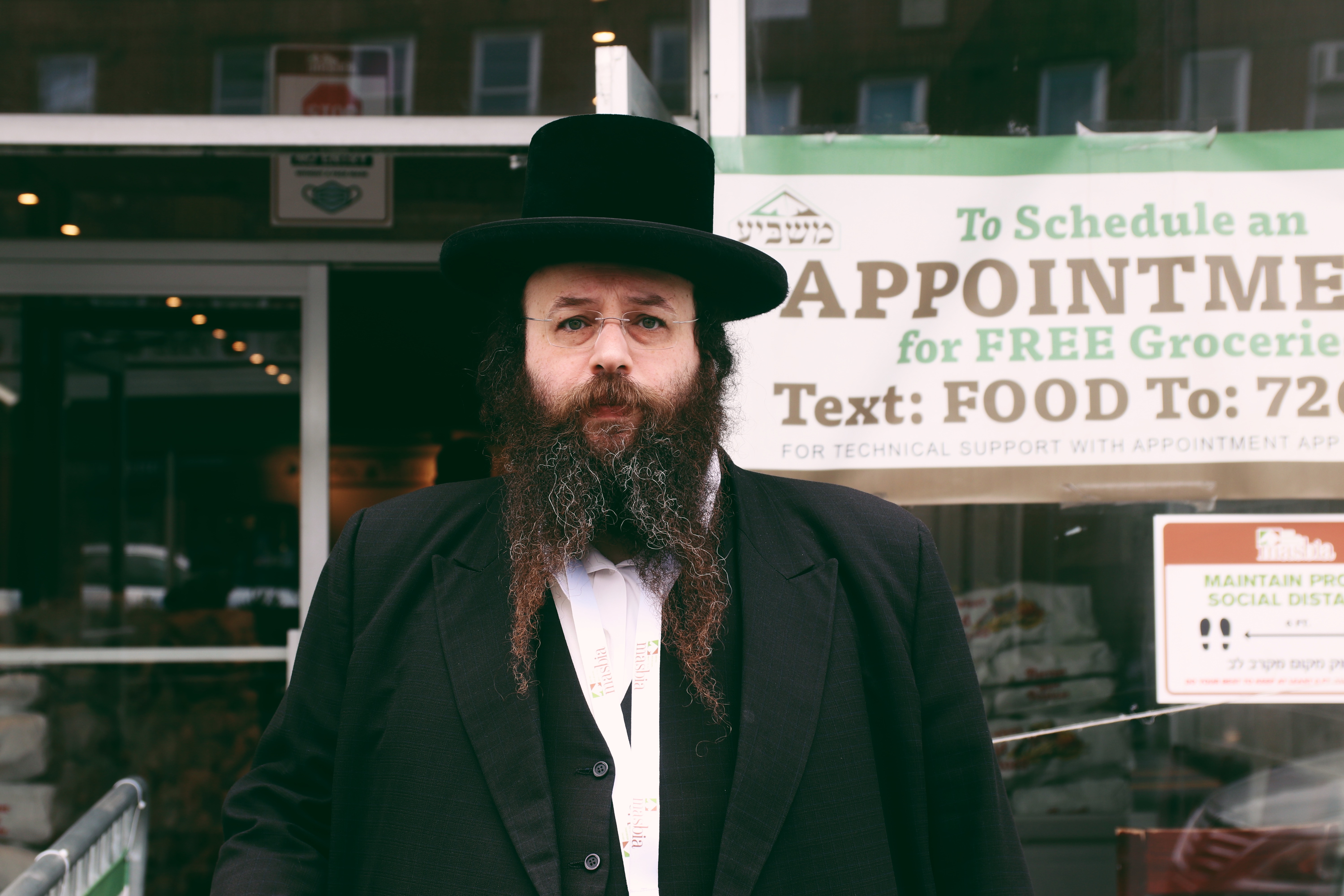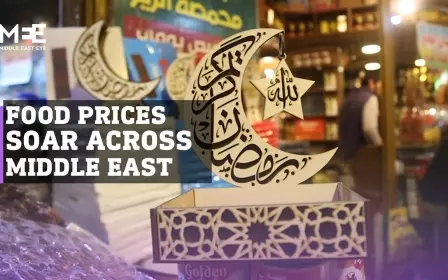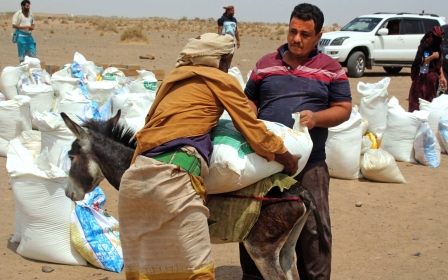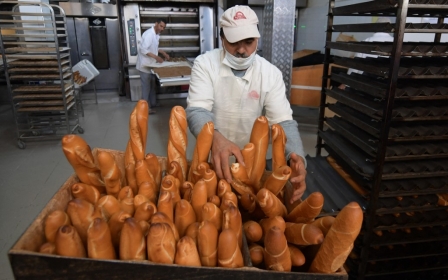US: Muslim-run food banks struggle to feed the hungry as prices surge
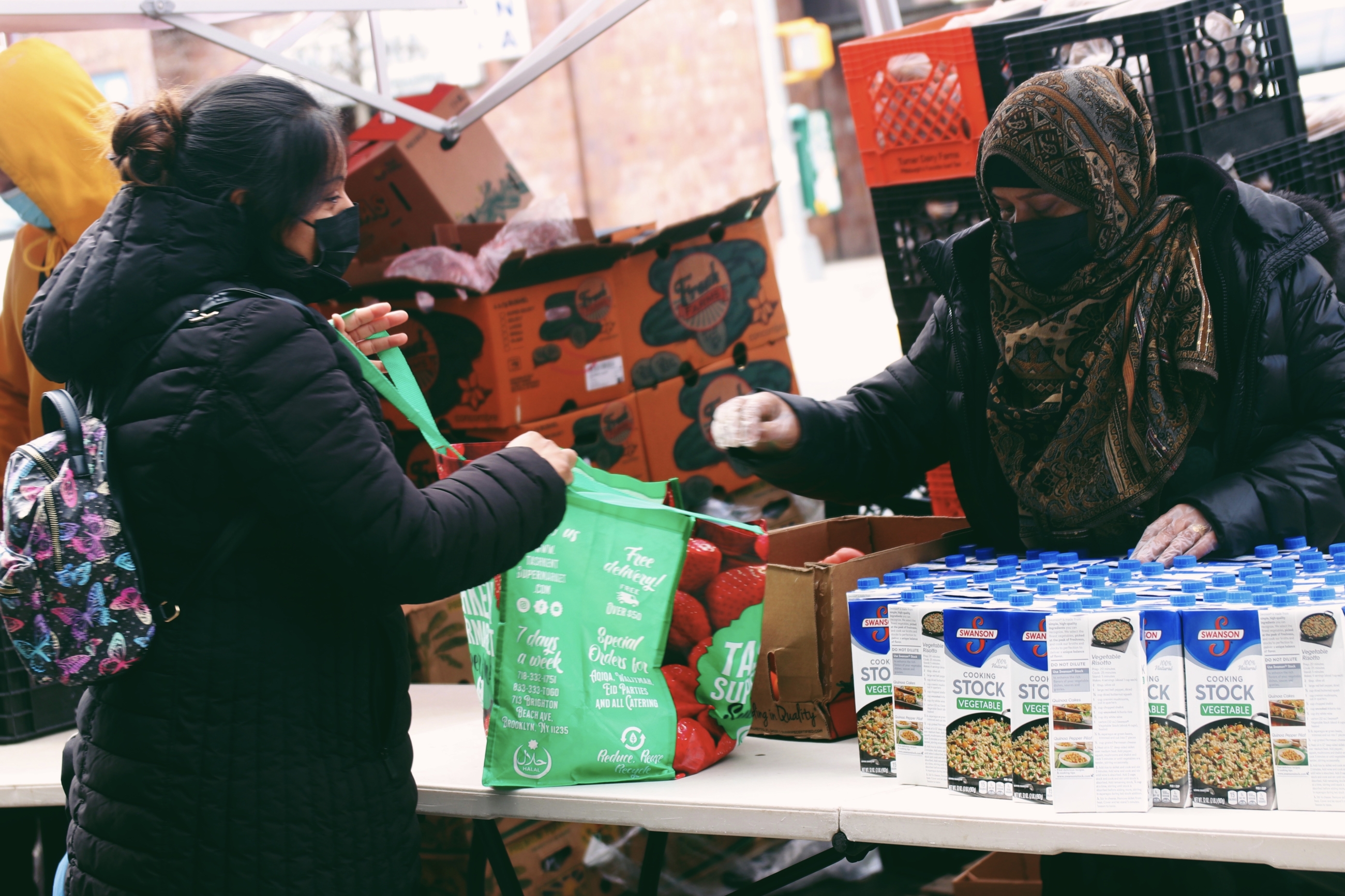
A day before the start of the Muslim holy month of Ramadan, Jabaran Akram was volunteering at a food bank in Brooklyn, New York City.
Usually, every person who lines up gets an entire loaf of bread. But as Akram and his fellow volunteers were distributing bags of food they soon realised they were running low on supplies - and there were still hundreds of people in the queue.
Struggling to cope, they had no option but to ration the supplies, Akram told Middle East Eye.
They opened up bags of bread and started giving people a few individual pieces instead.
New MEE newsletter: Jerusalem Dispatch
Sign up to get the latest insights and analysis on Israel-Palestine, alongside Turkey Unpacked and other MEE newsletters
He said that during the past two years, the lines had "gotten longer to a level I haven't seen".
"Food prices are going up and many people have told me they can't afford to shop the same way," he said.
"I would say inflation is a high driver of this. While people are trying to recover from a pandemic, they are faced with drastic increases in food prices."
According to a US Bureau of Labor Statistics report, food prices increased 0.6 percent in February in New York and New Jersey. In the DC-Maryland-Virginia area, food prices rose 6.7 percent over the year.
A report by the US Department of Agriculture (USDA) stated that price increases for food-away-from-home (which includes grocery store purchases) are expected to "exceed historical averages".
Just outside Washington in the suburbs of northern Virginia, Stacey Picard has been running into similar issues.
Picard has been leading the Dar al-Hijrah Mosque's social services for the past four years, and every Thursday they run a food pantry which helps around 800 people every week.
However, with the cost of basic foodstuffs spiralling, they have had to cut back on how they help.
"Sometimes the bags are a little bit smaller, sometimes we experiment with the mix. I have a whole order calculation sheet. So I'll put all the pricing in and have to choose from the least expensive items.
"These bags used to be closer to $4 or less a bag. But now I'm over $5 a bag and the bag is smaller and doesn't have as much variety as it used to."
Inflation, fuel prices, and the impact on food
Inflation in the US has hit its highest level since 1982, with an inflation gauge that is monitored by the Federal Reserve increasing to 6.1 percent in January, compared to last year, ABC News recently reported.
According to Hoa Hoang, a senior research associate at the Food and Agriculture Policy Research Institute at the University of Missouri (FAPRI-MU), the immediate impact of Russia's invasion of Ukraine was the price of fuel and gas.
In the US, the effects of food prices may not be seen immediately, but still, it will greatly impact people and will contribute to the issue of food insecurity, she explained.
'Food is also very expensive, but this food bank has been a lot of help - it's a lifeline'
- Hamza
She added that high food prices mean people who live on a fixed income have less purchasing power.
"For the rich, higher food prices might not affect their purchasing power as well as the quality of diet as much, since food expenditure accounts for just a smaller share of their disposable income," she said.
"For the poor, food expenses might account for a third of their disposable income or even more, which means, say, a 10 percent increase in grocery bill would be significant enough to change shopping behaviours and consumption habits toward an unhealthy diet.
"Food expense is different from other expenses as it can be easily compromised since you tend to have less leeway for rent, health care or school fees. Those are pretty fixed in the short term," she added.
"So any significant reduction in purchasing power would mean people who are on a shoestring budget would have to reduce food expense, therefore compromising on the quality of diet to make ends meet."
According to the USDA's March report, all food prices are expected to go up between 4.5 percent and 5.5 percent this year, with poultry expected to increase between six and seven percent.
High unemployment rates don't help either, with New York City's unemployment rate hovering at around 7.6 percent, while the number of out of work in Washington DC stands at around 6.3 percent.
But even for those who are employed, wages have not kept up with recent price hikes.
Hamza*, a Washington resident, travels to the Dar al-Hijrah Mosque every Thursday to receive a bag of food.
He currently works at a hotel in the area, but his wages have not kept up with the increased cost of living in the area. On top of that, he has only been able to obtain a part-time position - 30 hours a week - due to the coronavirus pandemic's impact on the hospitality sector.
"Right now, the situation is really bad. Work at the hotel is not enough hours, and not enough to cover all expenses. This is a very expensive area to live in," he told MEE.
"Food is also very expensive, but this food bank has been a lot of help - it's a lifeline."
Government programmes need funding
Inflation is causing a strain on food banks across the country, as is the fact that many government pandemic relief programmes have ended, Akram said.
The USDA's Farmers to Families Food Box programme was created as a temporary, emergency relief effort to respond to severe market disruption caused by coronavirus. Because of the programme, more than 155 million food boxes were given out across the country. But on 31 May 2021, the programme shut down.
The Pandemic Food Reserve Emergency Distribution Program (P-FRED), established in 2020, also ended last year. Fewer pandemic food programmes means a large decrease in food coming into the pantries, said organisers.
"They need the government to continue funding programmes that have expired, or create new ones. The programmes have ended, [but] people’s needs are still there," Akram said. "It is difficult for organisations to purchase from their own pocket. Many pantries have to cut people off, or not everyone that has a need gets everything.
"There might be a few cans left at the end of the pantry and people are waiting in line just so they can get those cans."
Feeling the strain
The Council of Peoples Organization (COPO) is also feeling the strain. Mohammad Razvi, its founder, was standing next to the line of hundreds of people waiting to get food on Friday.
His pantry opens at around 11:00 am, but the queues begin as early as 6:00 am. Every once in a while, someone attempts to skip the line, and an argument ensues.
During the height of the pandemic, COPO started to support other local food pantries, including one a block away from theirs, and one just across the street.
Doing that helped alleviate the pressure on COPO, which at one point had 3,000 people in line, said Razvi. He also donated food to a local church, but now it's getting harder - because they themselves aren't getting enough food.
"Everyone is saying it's getting better, but it's not getting better," he said. "These people are still here. They need help. And it's everyone. It's not just one particular community. It's the Chinese, the Spanish, the Russian, Arab. All of them. Everyone needs help."
Alexander Rapaport is the founder of Masbia, a food bank and kosher soup kitchen network in New York.
Masbia has been around since 2008. When there weren’t as many Muslim-based pantries, Masbia would be the one that Muslims turned to for food. And even now, they show up. A day before Ramadan, volunteers were giving out packets of Medjool dates.
Masbia operates on an appointment-based system to make sure there is no queue. Before this system, lines would stretch for blocks.
But Masbia also faces strains because of high food prices.
"The prices of eggs went up, right? We were supposed to get a delivery of eggs today. And it's the holiday season. But the eggs didn't come," he said. "There are always challenges. But this is definitely an issue."
*Name changed to protect identity.
Middle East Eye delivers independent and unrivalled coverage and analysis of the Middle East, North Africa and beyond. To learn more about republishing this content and the associated fees, please fill out this form. More about MEE can be found here.


